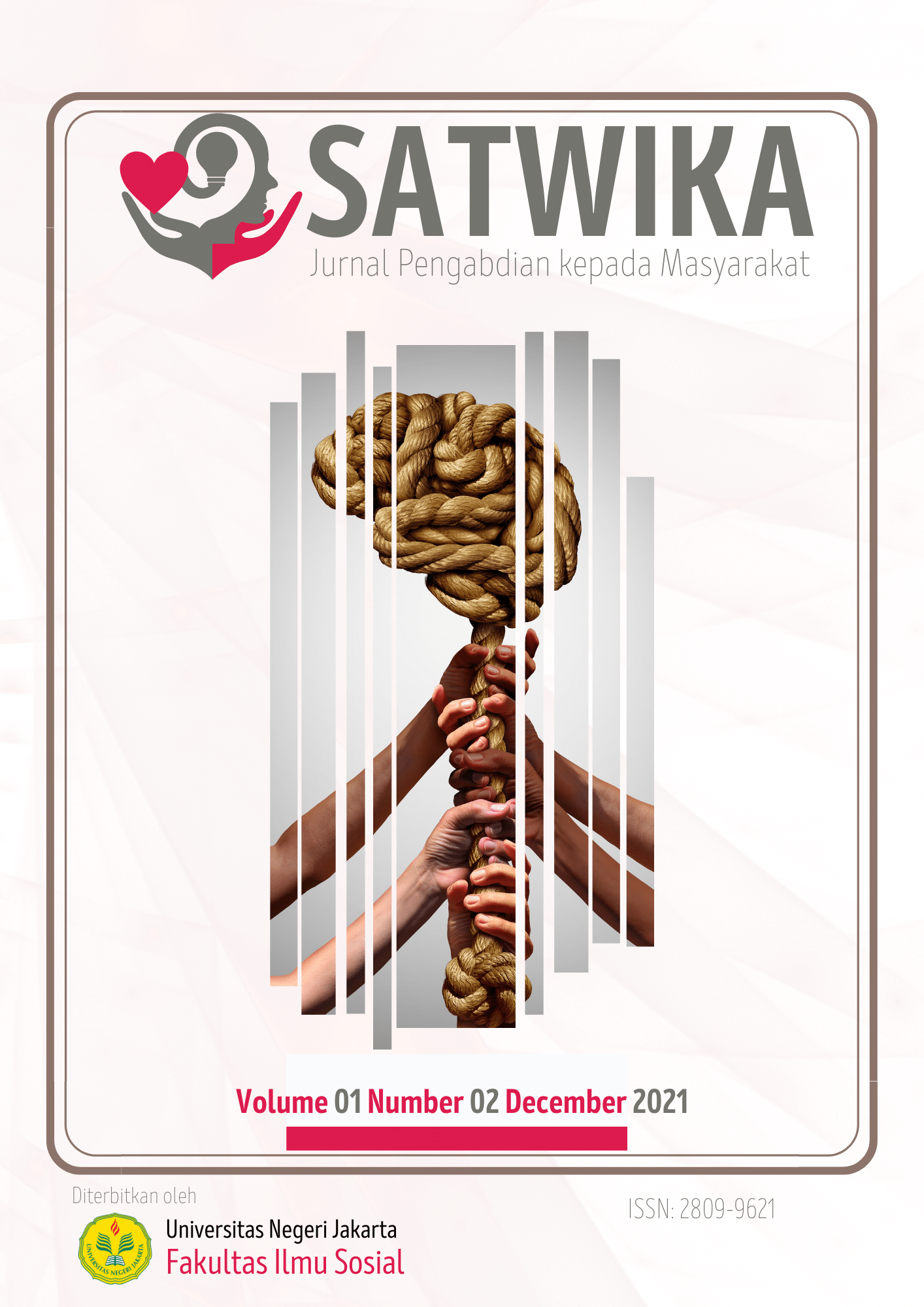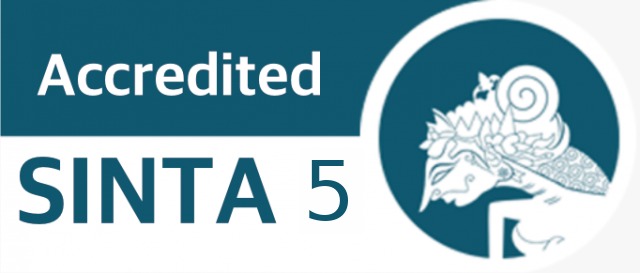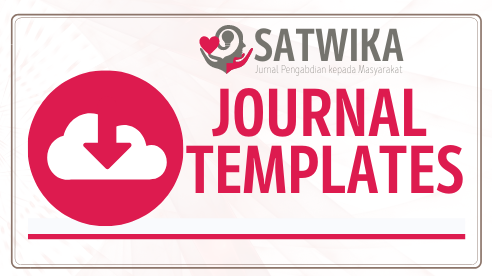Keterampilan E-Learning Guru dan Pembelajaran Selama Pandemi Covid-19; Apa Masalahnya?
DOI:
https://doi.org/10.21009/satwika.010204Keywords:
E-learning skills, Geography Teacher, Distance Learning, Guru Geografi, Keterampilan e-learning, pembelajaran jarak jauhAbstract
ABSTRAK
Pendidikan seharusnya tidak dipandang sebagai sebuah cara yang terisolasi untuk mengatasi masalah lingkungan termasuk pandemik Covid-19, tetapi lebih sebagai bagian yang kompleks dan beragam dari sistem yang lebih besar dalam struktur dan proses yang saling berinteraksi. Permasalahan belum dimilikinya keterampilan pembelajaran daring oleh sebagian guru geografi merupakan diagnosa awal pentingnya upaya meningkatkan keterampilan e-learning guru sebagai solusi mandiri pembelajaran jarak jauh. Metode kajian menggunakan studi deskriptif. Responden terlibat sebanyak 38 guru dengan pola pengumpulan data melalui data sharing pada platform Google Meet selama Oktober hingga November 2020. Data terolah meliputi deskripsi terkait hasil observasi, hasil desk analysis aspek-aspek permasalahan maupun pengembangan sistem e-learning. Hasil analisis menunjukkan bahwa terdapat tiga komponen penting yang diperlukan guna peningkatan keterampilan e-learning guru yaitu: (1) Metode pelaksanaan dan konten pembelajaran yang lebih cocok; (2) Mainset guru yang baik dalam mensikapi pembelajaran daring; serta (3) Material dan piranti pembelajaran daring yang memadai.
ABSTRACT
Education should not be viewed as an isolated way of dealing with environmental problems including the Covid-19 pandemic, but rather as a complex and diverse part of a larger system of interacting structures and processes. The problem of not having online learning skills by some geography teachers is an early diagnosis of the importance of efforts to improve teachers' e-learning skills as an independent solution for distance learning. The study method used a descriptive study. Respondents were involved as many as 38 teachers with a pattern of data collection through data sharing on the Google Meet platform during October to November 2020. The processed data included descriptions related to observations, results of desk analysis of problem aspects as well as e-learning system development. The results of the analysis show that there are three important components needed to improve teachers' e-learning skills, namely: (1) more suitable implementation methods and learning content; (2) A good teacher's mainset in responding to online learning; and (3) adequate online learning materials and tool.
References
Marianne E. Krasny, Cecilia Lundholm & Ryan Plummer. 2010. Environmental education, resilience, and learning: reflection and moving forward. Journal Environmental Education Research, Volume 16, 2010 - Issue 5-6: Resilience in social-ecological systems: the roles of learning and education, Pages 665-672, https://doi.org/10.1080/13504622.2010.505445
Farida, I, Liliasari, Widyantoro, D. H., & Sopandi, W. (2017). A web-based model to enhance competency in the interconnection of multiple levels of representation for pre-service teachers. In Ideas for 21st Century Education (pp. 359–363). Taylor & Francis Group.
Yuliani, E., Sari, S., Windayani, N., & Sobandi, O. (2018). Android-based multimedia for learning acid and base, 3, 309–313.
Aisyah, R., Fatimah, N. S., & Farida, I. (2020). The Manufacture of the KETA Chemistry Game for Voltaic Cells Learning Materials. Journal of Physics: Conference Series, 1467(1). https://doi.org/10.1088/1742- 6596/1467/1/012032
Irwansyah, F S, Yusuf, Y. M., Farida, I., & Ramdhani, M. A. (2018). Augmented Reality (AR) Technology on The Android Operating System in Chemistry Learning. In IOP Conference Series: Materials Science and Engineering (Vol. 288, p. 12068).
Farida, Ida, & Purwanti, V. (2013). Profil Kemampuan Representasi Kimia Mahasiswa Pada Konsep Kesetimbangan Kelarutan Menggunakan Chemsense Animator Dan Simulasi PhET. In The 2nd International Conference of the Indonesian Chemical Society 2013.
Supiandi, U., Sari, S., & Subarkah, C. Z. (2019). Enhancing Students Higher Order Thinking Skill through Instagram based Flipped Classroom Learning Model, 253(Aes 2018), 233–237. https://doi.org/10.2991/aes-18.2019.55
Wulandari, I., Irwansyah, F. S., Farida, I., & Ramdhani, M. A. (2019). Development of student’s submicroscopic representation ability on molecular geometry material using Augmented Reality (AR) media. Journal of Physics: Conference Series, 1280(3). https://doi.org/10.1088/1742- 6596/1280/3/032016
Farida, Ida, Zahra, R. R., & Irwansyah, F. S. (2020). Experiment Optimization on The Reaction Rate Determination and Its Implementation in Chemistry Learning to Develop Science Process Skills. Jurnal Pendidikan Sains Indonesia (Indonesian Journal of Science Education), 8(1), 67–77.
Praherdhiono, H., Adi, E. P., Prihatmoko, Y., Nindigraha, N., Soepriyanto, Y., Indreswari, H., & Oktaviani, H. I. (2020). Implementasi Pembelajaran Di Era Dan Pasca Pandemi Covid-19. Seribu Bintang.
D. Zhang, J. L. Zhao, L. Zhou, and J. F. Nunamaker, “Can e-learning replace classroom learning?,” Commun. ACM, 2004.
Downloads
Published
How to Cite
Issue
Section
License
In developing strategy and setting priorities, SATWIKA: Jurnal Pengabdian kepada Masyarakat recognize that free access is better than priced access, libre access is better than free access, and libre under CC-BY-SA or the equivalent is better than libre under more restrictive open licenses. We should achieve what we can when we can. We should not delay achieving free in order to achieve libre, and we should not stop with free when we can achieve libre.
SATWIKA: Jurnal Pengabdian kepada Masyarakat is licensed under a Creative Commons Attribution 4.0 International License
You are free to:
- Share — copy and redistribute the material in any medium or format
- Adapt — remix, transform, and build upon the material for any purpose, even commercially.
- The licensor cannot revoke these freedoms as long as you follow the license terms.










